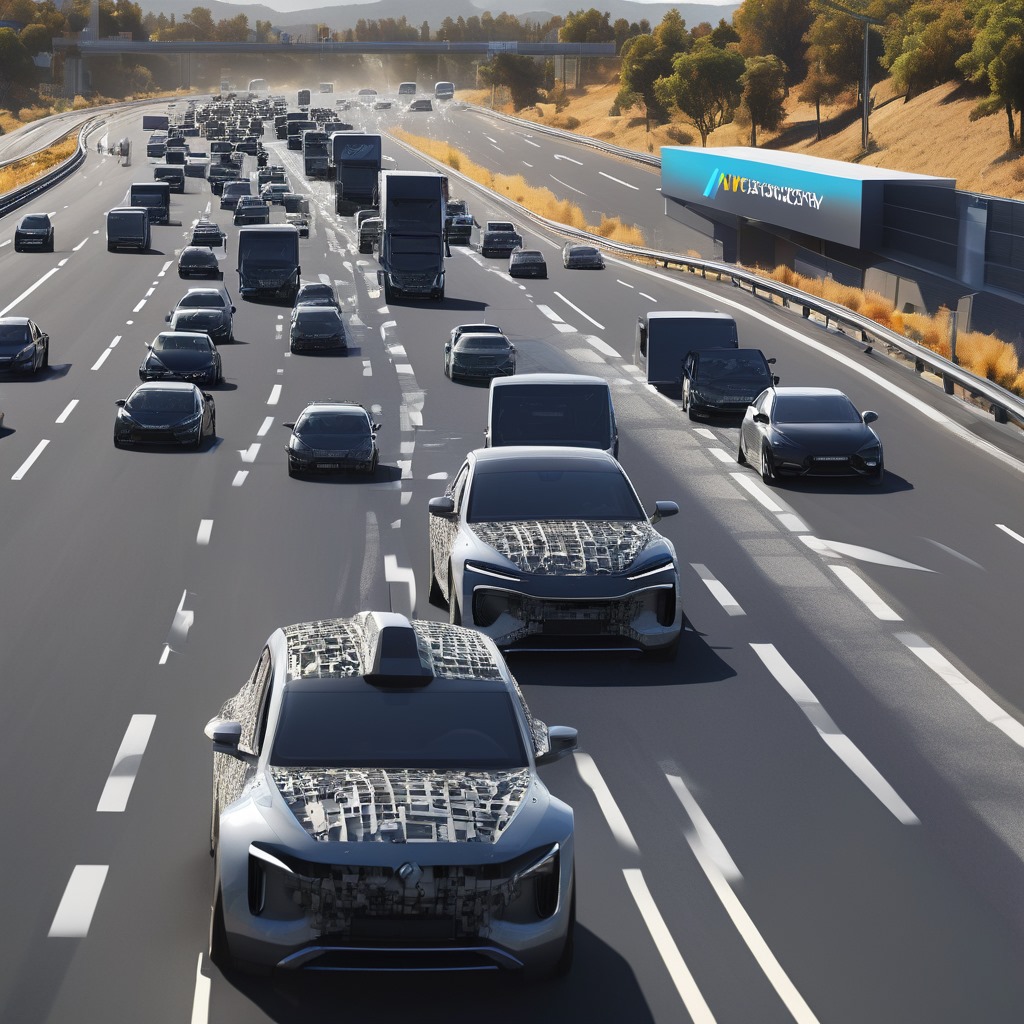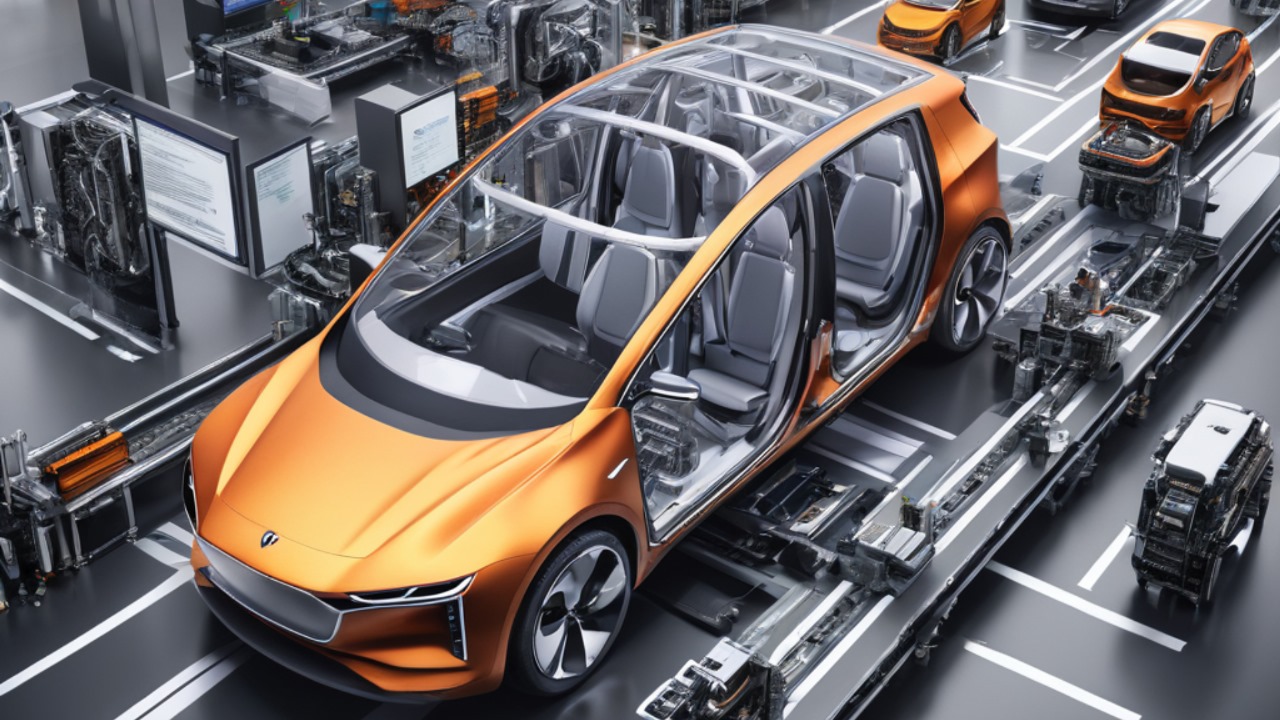NXP Semiconductors has unveiled an industry-first software-defined vehicle platform marking a significant innovation step. A new era of unparalleled customization connectivity and functionality is expected to be ushered in by this ground-breaking development in automotive technology which will fundamentally alter the landscape of vehicle design manufacture and operation. The ramifications of this development go well beyond the automotive sector they may also have an impact on sustainability initiatives urban mobility and transportation infrastructure. We will examine the importance of NXPs innovative platform in this in-depth analysis as well as its varied implications for the automotive industry and other domains.
The Development of Vehicles Defined by Software:
Automobiles have historically been characterized by their hardware with fixed functionalities decided upon during production. Software-defined vehicles on the other hand mark a paradigm shift in the thinking behind automotive design. Software-defined cars give manufacturers unmatched flexibility and scalability by separating functionality from hardware allowing for constant updates and customization over the course of the vehicles lifecycle. This revolutionary strategy expedites the development and production of vehicles while enabling automakers to provide consumers with state-of-the-art features and offerings.
The Visionary Platform of NXP:
NXP Semiconductor a leader in automotive semiconductor solutions globally is leading this revolutionary movement. NXP has unveiled a ground-breaking platform that forms the basis of software-defined vehicles utilizing its vast experience in automotive-grade processors sensors and connectivity solutions. With the help of this cutting-edge platform automakers can create next-generation vehicles that are incredibly adaptive intelligent and connected.
It does this by offering a full suite of hardware and software components. NXPs platform is primarily based on its ability to support over-the-air (OTA) updates which enables automakers to instantly and remotely install security patches and software updates on vehicles. By quickly fixing vulnerabilities this feature improves cybersecurity and guarantees that cars always have the newest features and improvements. Furthermore the platform makes it easier to integrate machine learning (ML) artificial intelligence (AI) and advanced driver assistance systems (ADAS) opening up new possibilities for autonomous driving and predictive maintenance.
Additionally by supporting cutting-edge standards like 5G NXPs platform offers strong connectivity allowing cars to connect with infrastructure cloud-based services and other vehicles. Vehicles are now able to improve safety maximize performance and provide users with individualized experiences thanks to this connectivity. In a market that is becoming more and more competitive automakers can set themselves apart from the competition by utilizing NXPs platform to customize their products.
Implications for the Automotive Industry:
The automotive industry will be greatly impacted by the launch of NXP software-defined vehicle platform. Manufacturers now have the chance to reinvent the driving experience by offering cutting-edge features and services that satisfy a wide range of customer demands and preferences. Instead of depending exclusively on hardware specifications, software-defined vehicles allow automakers to differentiate their products through software-driven capabilities.
Furthermore by streamlining the development and production processes for vehicles, software-defined architectures may lower manufacturing costs and time-to-market. Automakers can take advantage of economies of scale and concentrate their resources on core competencies like design branding and customer engagement by adopting modular scalable platforms like NXPs. As manufacturers compete to provide compelling user experiences and keep ahead of technological advancements the industry is expected to experience innovation competition and collaboration as a result of the shift towards software-defined vehicles.

Beyond Automotive:
NXPs platform has an immediate effect on the automotive industry but its effects go well beyond the production of cars. As businesses look to capitalize on the rising demand for connected autonomous and electric vehicles the convergence of an automotive and technology sectors has opened the door for new business models and alliances.
Furthermore transportation infrastructure sustainability programs and urban mobility are all impacted by the introduction of software-defined vehicles. Urban environments can become more sustainable and livable by optimizing traffic flow minimizing environmental impact and reducing congestion through the use of data-driven insights and predictive analytics in towns. Software-defined vehicles may also spur innovation in related sectors like ride-sharing delivery services and logistics as businesses look for new ways to improve the convenience and efficiency of transportation.
Difficulties and Things to Think About:
Even though software-defined vehicles have a lot of potential there are a few issues and concerns that need to be resolved before they can fully pay off. The most important of these is cybersecurity since connected cars are more susceptible to online threats and assaults. Strong security measures and best practices must be prioritized by manufacturers to protect vehicle systems and user data from possible breaches. Compatibility interoperability and regulatory compliance become more complicated as software-driven features proliferate.
To make sure that software-defined vehicles fulfill strict safety and performance standards automakers must overcome these obstacles through industry cooperation standardization initiatives and proactive engagement with regulatory agencies. To further enhance the state-of-the-art in automotive software and handle new opportunities and challenges in the quickly changing automotive landscape research and development expenditures must be sustained.
In Conclusion:
To sum up the release of the first software-defined vehicle platform by NXP Semiconductors marks a turning point in the development of automotive technology. Manufacturers have the chance to completely transform the automotive experience by adopting software-driven architectures giving customers all over the world access to previously unheard-of levels of personalization connectivity and intelligence.
A new era of innovation and advancement could be ushered in by software-defined vehicles which have the potential to completely transform not just the automotive industry but also urban mobility transportation infrastructure and sustainability initiatives. NXPs innovative platform is a prime example of the revolutionary potential of technology to redefine entire industries improve peoples quality of life and have a positive impact on society. As we set out on this journey towards a future characterized by innovation teamwork and software the opportunities are endless and the potential for good change is enormous.

Leave a Reply